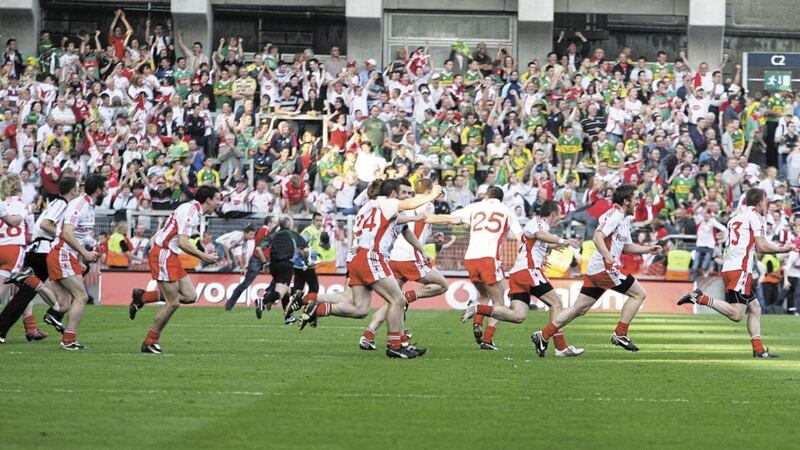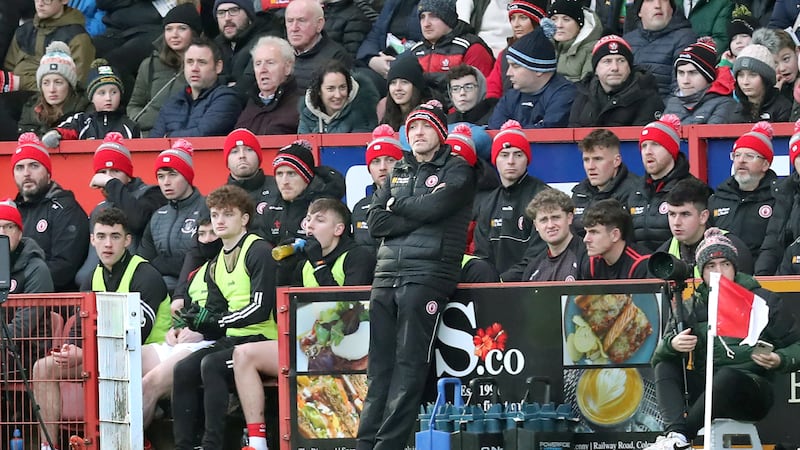Monday is the 25th anniversary of the founding of the English Premier League and here Professor David Hassan (Ulster Universtity) draws a parallel between the commercialisation of that league and some of the same factors that are now emerging within the GAA....
It's now 53 years since the publication of Walter Neale’s seminar work entitled ‘The Peculiar Economics of Professional Sports’.
He argued that there was specificity to the governance of sport, and its financial management, that set the sector apart from ‘normal’ business practices.
His analysis offers a salutary reminder to the GAA about the need for careful governance of an organisation so valued within Ireland, which is both amateur and professional, and the importance of ensuring the integrity of open and equal competition at its elite level.
Neale advanced the view that clubs (counties) and leagues (championships) constituted a form of joint production.
Sports competitions, he argued, required the presence of effective governance mechanisms to ensure an adequate level of competitive balance is maintained.
It is difficult to find evidence of these mechanisms in the activities of the GAA.
Since Neale published his work only 11 teams have won the All-Ireland Football Championship, with six of these accounting for 16 such successes.
Over the last 20 seasons only four counties have won the hurling equivalent, including a single title for Clare in 2013.
Not that the situation is markedly different in the world of professional sport. Since the formation of the English Premier League (EPL) only six teams have won the championship title, with Manchester United accounting for more than half of these.
In 2011 UEFA, European soccer’s governing body, introduced its ‘Financial Fair Play (FFP)’ regulations designed to curb the excessive spending of many professional clubs and present a sustainable future for the game.
It also incentivises support for youth development and investment in infrastructure to encourage greater competitiveness between teams in national leagues and pan-European competitions.
There are three reasons why it is necessary to consider similar measures to safeguard, some might argue create, competitive balance within inter-county GAA competitions.
Firstly, a failure to do so sows the seeds of an American model of sports entertainment; a closed, franchised system of competition, with limited redistribution of revenue outside a treasured elite and a concentration of sports labour amongst a minority of leading teams.
Secondly, with the emergence of unequal financial power and reward inevitably follows a prioritisation of winning over financial prudence.
Yet this creates a built-in incentive for counties to be financially irresponsible in the pursuit of success.
The EPL posted revenue figures in excess of £5.5 billion last year yet still, on the 25th anniversary of its founding, it has only managed to post a combined pre-tax profit over the past two seasons.
Instead, for the first 23 years of its existence, the league remained chronically unprofitable to the point that some observers questioned the folly of continuing to invest in a venture that generated debt on an unfathomable scale.
It follows that any successful sports competition or championship needs to enact a proper regulatory system to counter a growing tendency, evident even within the GAA, of counties ‘living beyond their means’.
Finally, the GAA makes a virtue of its association with its grassroots but, for this reason, it should guard against any possibility of alienating its membership by introducing aspects of profit-led sports governance. Fans of all counties, and clubs, exhibit an extraordinary degree of loyalty to their teams.
This area of consumer-producer relationships in sport is unique in business terms and needs to be nurtured and protected by governing bodies rather than risk becoming a quaint throwback to halcyon days.
There is a sense that the GAA is changing and some fear that its contribution to the balance sheet of life is in jeopardy.
The GAA, unlike its contemporaries within the FA, must remain wary of becoming bystanders amid the progressive, increasingly rampant, commercialisation of an organisation they are appointed to safeguard.
Placing a finite, if progressive (to reflect progress in its annual championships), cap on the amount of GAA-related income to be used in the preparation of inter-county teams would be a start. Introducing robust auditing of fundraising bodies tangentially linked to county boards is also long overdue.
Enacting legislation preventing counties from appointing managers who have not been affiliated to a host club for a minimum of 2 years would encourage coaches from within these counties to further their professional development.
Alongside this an incremental approach to county team development through the introduction of meaningful tiered competitions is imperative.
Some argue the counties don’t want it but, by now, it has become a strategic requirement. Offering enhanced solidarity payments to counties otherwise cut adrift in the lower tiers of hurling and Gaelic football would also offer hope of a brighter future and help overcome any initial reticence to adopt this new approach.
The GAA’s inter-county competitions are but one aspect of an organisation admired the world over.
However it is a common and high-profile feature of the association and protecting its appeal through a sustainable model of sports governance, with competitive balance at its core, remains the primary responsibility of the organisation’s leaders.
Professor David Hassan is Associate Dean of Life and Health Sciences and Chair of Sports Policy and Management at Ulster University.







